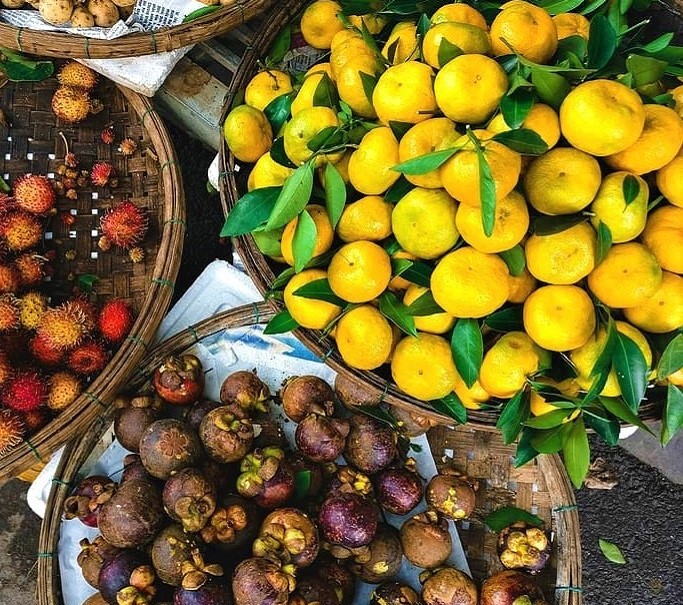
- Industry news
Industry news
- Category news
Category news
- Reports
- Key trends
- Multimedia
- Journal
- Events
- Suppliers
- Home
- Industry news
Industry news
- Category news
Category news
- Reports
- Key trends
- Multimedia
- Events
- Suppliers
COVID-19: Supply chain disruptions could cause major food shortages across Asia, industry warns

30 Mar 2020 --- In light of the surging number of nationwide lockdowns and border restrictions spanning the Association of Southeast Asian Nations (ASEAN), Asia’s F&B industries are growing increasingly concerned about food security. Regional associations are now calling upon governments to ensure the unhindered production and supply of food and beverages as each country tries to contain the outbreak of COVID-19. They warn that if severe restrictions are imposed by countries in response to the coronavirus pandemic, they will cause a ripple effect on the regional food supply chain.
The key role that governments need to play to ensure a stable food supply is ensuring that the manufacturing of food and beverage products, ingredients and other raw materials, as well as distribution by the retail sector, can continue uninterrupted. They also need to ensure that travel restrictions, including border management controls, do not result in the disruption of food supply chains.
 Current measures in containing COVID-19 that directly and indirectly impact the agri-food supply chain will only place further stress on food value chains, note the industry groups.“We need public and private consultation for any decision around the supply of food because without both parties talking to each other, the impact on a country can be very harmful. Governments must work with the food industry in this time of crisis to categorize food and beverages as essential, understand the implications of disruptions and delays, and try to safeguard production and supply,” urges Matt Kovac, Executive Director of Food Industry Asia (FIA), which has joined forces with the ASEAN Food and Beverage Alliance (AFBA) in a joint warning.
Current measures in containing COVID-19 that directly and indirectly impact the agri-food supply chain will only place further stress on food value chains, note the industry groups.“We need public and private consultation for any decision around the supply of food because without both parties talking to each other, the impact on a country can be very harmful. Governments must work with the food industry in this time of crisis to categorize food and beverages as essential, understand the implications of disruptions and delays, and try to safeguard production and supply,” urges Matt Kovac, Executive Director of Food Industry Asia (FIA), which has joined forces with the ASEAN Food and Beverage Alliance (AFBA) in a joint warning.
In Asia, and especially across ASEAN, the rapidly developing countries already face significant food security challenges. Current measures in containing COVID-19 that directly and indirectly impact the agri-food supply chain will only place further stress on food value chains, note the industry groups.
During a lockdown, Asia’s F&B stakeholders underscore the potential for sweeping regional food shortages brought on by unnecessary panic buying behavior, under the circumstances that governments across the region enact policies that hinder production across supply chains in addition to enforced trade barriers.
In tandem with its call to protect the unhindered flow of food, FIA and AFBA are also requesting for governments in the region to recognize the continued production and supply of food as an essential product and service. Already in Europe, similar assurances have been called for by leading stakeholders. Across global supply chains, a unifying sentiment rings clear: “The workforce cannot stay at home if the food supply chain is to remain fully functional.”
As more countries in the ASEAN region tighten border access and restrict the movement of non-essential goods, the categorization of all food and beverages must remain as essential to ensure a continuous food supply, the stakeholders emphasize.
The availability of workers to support production is critical with the necessity of all industry players to reinforce efforts to keep employees safe and healthy. This is especially critical as the food supply chain is a complex web that involves producers, agricultural inputs, transportation, other logistics, availability of workers and so much more, the organizations note.
“While AFBA and FIA recognize the need for governments to take extraordinary and unprecedented measures to protect its population from COVID-19, the issue at hand is the delay and disruption of manufactured food and beverage products, ingredients, raw materials, and packaging for domestic consumption and for exports. Significant delays in manufacturing and distribution will slow down the entire food supply chain and effectively contribute to a shortage of essential goods,” the groups assert.
“FIA is calling for governments to keep their countries’ food production at full capacity where possible and for borders to remain open for food and beverage supply. A failure to do so will have serious negative consequences for the region,” they further underscore.
At the same time, the industry bodies note that restrictions on the movement of workers to and from food manufacturing facilities is hampering the production of food and beverage products needed to meet consumer demand, which is heightened in the face of this changing environment.
Reiterating the need for an uninterrupted production and movement of food supply, Abdul Halim Saim, President of AFBA, says, “We are starting to see disruptions in the food supply chain, such as bottlenecks, when transporting food. Each country should review their existing food security policy as more needs to be done. Policy makers should involve the food and beverage sector in the process.”
 “Even the slightest measure affecting the free movement of people and goods will strain the global food chain further,” Halim concludes. Hampering a major driver of GDP
“Even the slightest measure affecting the free movement of people and goods will strain the global food chain further,” Halim concludes. Hampering a major driver of GDP
ASEAN’s food value chain is not only crucial for ensuring food security, but also a major driver of GDP and employment in the region. In terms of GDP, the sector representatives outline that the trade bloc’s food value chain contributes around US$500 billion of economic output, which is around 17 percent of its total GDP. The share of jobs is even higher, accounting for 34 percent of the total labor force.
“Any restriction of movement, including the workforce, will affect the stability of food production. The situation has now been exacerbated by the global increase in demand for food. Even the slightest measure affecting the free movement of people and goods will strain the global food chain further,” Halim concludes.
Restrictions on the movement of people, goods, services and containment measures, such as factory closures, due to COVID-19 have cut manufacturing and domestic demand sharply in China. In light of the pandemic, experts forecast that the global clampdown on the circulation of goods and citizen’s mobility will continue to weigh down upon world markets, should they persist.
As previously covered in FoodIngredientsFirst, COVID-19 concerns contributed to a significant World Food Price dip in February. In Italy, industry reps voiced concerns that food excellence may “fall into the eye of the hurricane.” The closure of entertainment venues and restaurants in affected regions of the world has remained a prominent challenge.
Meanwhile, last week in Europe, industry stakeholders have begun voicing concerns about prolonged trade bottlenecks caused by tightened border control. In the UK, leading food policy experts are warning Britain’s supplies of fresh fruit and vegetables, which predominantly come from Spain and Italy, could be severely disrupted by the coronavirus crisis.
By Benjamin Ferrer










